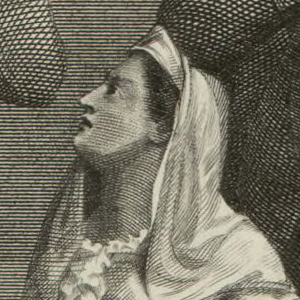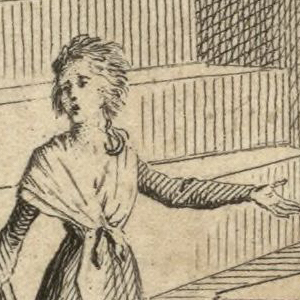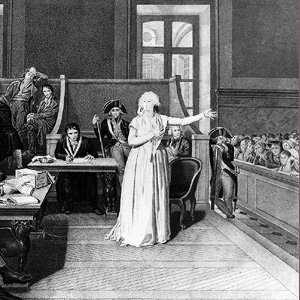Women
Bhakti Poets: Poem, Bahinabai 2
Bhakti poets—who were in some cases lower-caste Hindu women—and their audiences drew emotional sustenance from these verses, which expressed a pure devotion to Hindu deities.
Historical Essays on the Life of Marie–Antoinette, of Austria (1783)
Although by law, political power could not pass through the Queen’s body (only male heirs could succeed to the throne in France), there was great political interest in the body of Louis XVI’s Queen, Marie Antoinette, a Habsburg princess whose marriage into the Bourbon household solidified a diplo
Diary of a Woman at Fifty
Born in 1770 and married to the only surviving son of one of the greatest noble families in France, the Marquise de la Tour du Pin endured humiliation, emigration, and Terror during the first part of the revolutionary decade.
Citoyenne Lacombe’s "Report to the Society of Revolutionary Republican Women Concerning What Took Place 16 September at the Jacobin Club"
Claire Lacombe, an actress and one of the leaders of the Society of Revolutionary Republican Women, published a pamphlet to counter charges made against her and the club. By September 1793 the revolutionary government had begun to harass the leaders of the club.
A Vindication of the Rights of Woman
The English writer Mary Wollstonecraft (1759–97) argued against both Burke and Rousseau, defending the notion of natural rights, particularly rights for women, such as equal education.
Petition of Women of the Third Estate to the King (1 January 1789)
Little is known about women’s grievances or feelings in the months leading up to the meeting of the Estates–General in November 1789. They did not have the right to meet as a group, draft grievances, or vote (except in isolated individual instances) in the preparatory elections.
Ignacia Funes and Teresa Bulnes to Manuel López
In Córdoba, Argentina's second largest province, two women, Ignacia Funes and Teresa Bulnes, found themselves defending the conduct of two children, who were accused by their stepfather, known only as "Roca," of composing pro-Unitarian songs.

The Queen of Louis XVI King of France at the Guillotine, 16 October 1793
An idealized portrait of Marie Antoinette at the moment of death. Unlike the pale, aged woman the contemporaries observed, this later print memorialized a beautiful, absolutely pure, woman.

Image of the Queen’s Defense
The trial of the Queen is here depicted in a tinted engraving by Jean Duplessi–Bertaux as part of his series of Historical Scenes of the French Revolution.

Trial of Marie Antoinette of Austria
Some months after the execution of her husband, Marie Antoinette found herself in the dock of the public prosecutor, Antoine Quentin Fouquier–Tinville.